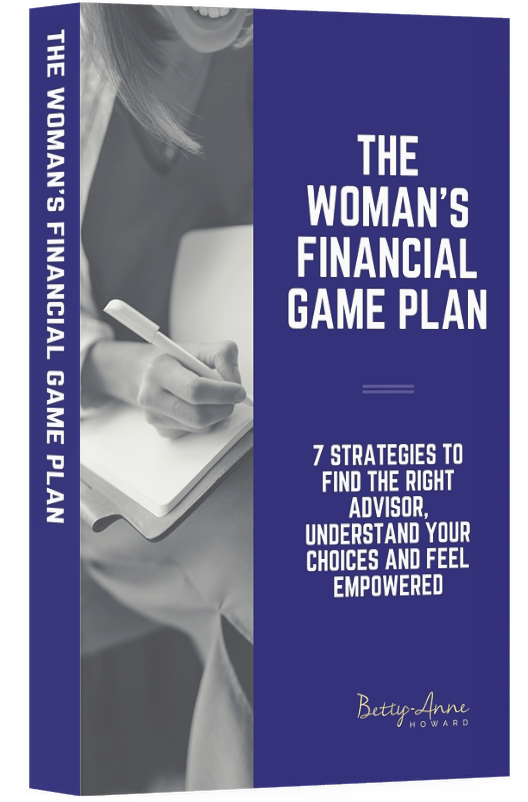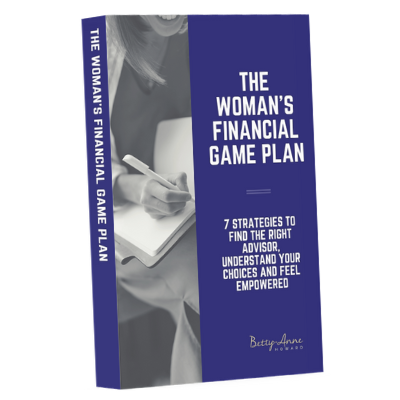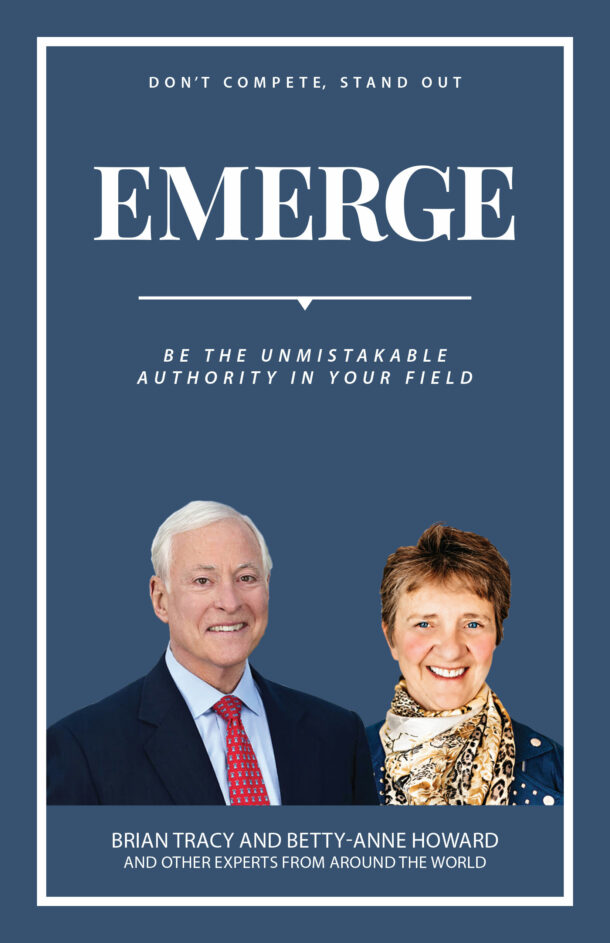
November is Financial Literacy Month (FLM), and in 2021 we’re celebrating the 10th anniversary of this initiative! But what is FLM all about? Well, the primary purpose is to encourage Canadians to invest in their financial well-being, a topic close to my heart. This means taking control of your finances and reducing financial stress by planning for your future.
Planning for your future isn’t a complicated process, and it’s built on three main pillars:
- A for Awareness: Being aware of your spending – what’s coming in and what’s going out. Sometimes we refer to this as budgeting, a word that often, unfortunately, makes people cringe
- B for Behaviour – Engaging in the behaviour necessary to both save and pay down your debts
- C for Change – Adjusting both your mindset and your activity (or your behaviour) to create the changes required to achieve these goals
Planning for your future should be a process that allows you to live your dreams now and make them a reality in the future. Understanding your financial rights and responsibilities is an integral component of this process.
You have a right to know and understand how to make your money work for you, in the best way possible – and a responsibility, if you want to make your dreams a reality, to engage in certain types of behaviours to make that happen.
But often, we’ve found that the financial services industry has inhibited your gaining access to this vital information. We believe you shouldn’t have to slog through meaningless jargon to figure out and understand what you need to know to have a healthy relationship with your money.
Since starting to work in the field of financial services over 20 years ago, our goal has been to empower Canadians to make informed decisions about their money. The best way to do this is by making information accessible, interesting, relevant, and fun!
And if you’re like many people who think money and financial planning needs to be very serious business indeed, you can substitute the word “enjoyable” for “fun.” But we encourage you to consider that it can also be fun!
The ABC’s of Financial Literacy: A = Awareness

Becoming aware of how and why you interact the way you do with your money is an excellent starting point for financial literacy. From there, you can begin to understand more about your spending, saving, and investing behaviour, given it’s your mindset that determines your behaviour to a large extent.
To make informed decisions and understand financial planning principles and strategies, you also need to become more self-aware of your money mindset and your relationship with money, both of which are influenced by your upbringing, social group, and society at large.
Our mindsets also have an impact on our emotions, the feelings we have surrounding money.
Here’s a simple example of this: you see a gorgeous dress online that you like, you feel excited about the prospect of owning it, can see yourself wearing it, and then, because your money personality is that of a saver, you decide to skip buying it. Thus, your money mindset impacts your behaviour.
Another opposite example is someone who sees something they’d like to buy, like a pontoon boat, and their money mindset is that of a spender (meaning they are more inclined to spend money than save it). They get excited about owning this boat, think about how much fun it will be on the lake cruising around, tell themselves they deserve a treat given they work so hard – and voila – the boat is purchased and enjoyed.
Let’s check in here and see how you’ve responded to each scenario. Are you scoffing at the dress buyer for hesitating and asking yourself what’s the big deal, or are you thinking; yes, this is what I do too! Are you thinking you agree with the boat buyer who should buy the boat and enjoy life to its fullest? Or are you thinking, almost immediately, how will they pay for that boat?
As you can see, there’s no right or wrong, just different – different mindsets and relationships with money. A saver will forgo pleasures today for their perceived investment in the future, and a spender will live in the moment, emphasizing enjoying life for today.
Both personality types are essential, and we need a balance between living for today while planning for the future. Being aware of your money personality gives you insights into your relationship with money to see how your personality impacts your money behaviour. Having these insights enables you to see both the strengths and the hurdles in living for today while planning for the future.
Money Mindset Awareness
Do you have a scarcity or an abundance mindset when it comes to your perception of money?
For example, I grew up “poor,” i.e., below the poverty line, living in rural Ontario, in a small village of 1200 people. I was accustomed to and embarrassed about having to wear hand-me-down clothes from my older female cousins, eating roast bologna (with a mustard glaze and cloves) for Sunday Dinner, instead of roast pork or beef (unheard of in our household), and living in a “shack.”
I was painfully aware and ashamed of the clothes I wore, how I spoke, the food I ate, and where we lived. It took me years to realize the impact my childhood had on my “scarcity” mindset. I didn’t even know there was a label for such a thing and the toll that was taking on my life.
I was obsessed with having multiple safety nets in place and, most importantly, felt stressed and fearful most of the time with this feeling of “I’ll never have enough.”
I’m happy to say that I’ve done a lot of work to overcome this personal hurdle over many years. It takes time, energy, focus, and determination, and the good news is this, it can be done. But it does take the ability to make changes, something we’ll discuss a little further on.
The other side of this coin is an abundance mindset. This type of mindset can come from having enough food to eat as you were growing up, the ability to buy clothes directly in season from fashionable stores, and living comfortably. Hence, you weren’t worried about there being enough of what you needed in your life.
An abundance mindset is relatively easy to spot when I talk to people, given there aren’t the same fears and concerns about “will we have enough?” In addition, an abundance mindset can foster peace of mind when it comes to money, trusting that the money will be there when you need it, so it’s okay to go ahead and buy that pontoon boat and, in some cases, buy whatever you want, so long as it makes you happy.
Awareness starts by understanding the messages we are giving ourselves regarding money and seeing the patterns in our lives that lead us to make better and more informed decisions.
The ABC’s of Financial Literacy: B = Behaviour

This takes us to our behaviour. Our behaviour reflects our money mindset, and the best way to understand how the two are related starts with awareness. Behaviour includes many different topics, such as dealing with debt, saving, investing, and sharing or giving.
Let’s start with debt! Our spending behaviour creates our debt. For some people going into debt is no big deal. These people may use their credit cards to purchase all of their living expenses every month. Some people do that to obtain the points for rewards and – this is key – pay off that debt every month.
Other people accumulate debts, have no idea what their monthly credit card bill will be, and therefore haven’t set aside the money to pay it off. As a result, that debt accumulates over time, as do the interest charges. Once this becomes a revolving cycle, there is the potential to become overwhelmed with all the cumulative debts, which may result in their credit rating going down, which can influence their ability to borrow money to buy a house if that was one of their dreams.
Learning how to manage your money means becoming aware of what you are spending your money on and how that behaviour can influence or impact reaching your other goals.
Spending behaviours are money personalities
Have you ever heard the expression “having champagne tastes on a beer budget?” It mostly just means you are living beyond your means, and where you need to start is living within your means. Then, if you have goals for the future, you can start living below your means so you can take that extra money to put towards your goals.
That’s a straightforward example of how our spending behaviours, triggered by our money personality or mindset, go hand in hand. As you become more and more aware of these connections, you’ll become happier and more content with your money personality.
And what makes me say that?
The ABC’s of Financial Literacy: C = Changes

As a Financial Planner, having met and worked with 100’s of people over the past 23 years, I’ve noted some patterns in people’s behaviours, their corresponding mindset, and the changes they’ve had to make to achieve their dreams.
When we first start working with clients, we always start with a cash flow analysis. A cash flow analysis is just taking a closer look at your income and what you’re spending, along with the basic categories of what you’re spending where.
If you want to get into this in more detail, have a look at our Dancing with the Money Dragon Course, which is a terrific financial literacy course that helps you with sorting out your money management – it’s actually fun, and takes a building block approach to empower you to make your own financial decisions.
Generally, we find a third of people are overspending, a third have a balanced budget, and a third have money left over at the end of the month to put towards their goals. For those who have money left over, all they need from us is a plan on where best to allocate this money based on their goals.
For those who are overspending, the task at hand, first and foremost, is to figure out how they can cut back on their spending and/or increase their income. A balanced budget will require some tweaking to find the money to allocate to their goals.
Now, here’s the key – have you ever heard the expression, “if you keep doing what you’ve always done, you’ll keep getting the same results”? The same holds true for your money awareness, behaviour, and mindset.
Something will have to change, and you’ll need to find and acknowledge the links between your mindset and your behaviour to understand what to change.
We often reward ourselves with treats like dining out, new clothes or shoes, a vacation, or buying gifts for others. Becoming aware of money being used to treat ourselves or others gives us great insights into the factors motivating us to spend.
I’m certainly not saying that spending money is wrong. Instead, the perspective we take is; if your spending is interfering with your ability to save for your retirement, this becomes an issue/concern. It’s a delicate balance, and it can be a challenge to manage your own needs and your children and your family. But it’s a balance, and each person needs to find their way to balance out these, at times, competing needs.
Curiosity is the final piece of the puzzle
You may be wondering how curiosity fits in with the ABCs of Financial Literacy.
Being curious is a great way to approach your money mindset and behaviours. Why is being curious important? It takes the judgment out of the process and makes you much more inclined to explore these ABCs of financial literacy.
Curiosity helps you explore how aware you are of your spending, your saving, and how your money mindset has influenced your attitudes and behaviours in your relationship with money. In addition, you can begin to make informed decisions about how you want to use your money best, how you want to spend it, save it, share it, and invest it.
It’s all up to you to decide how you want to live today while planning for the future. What additional information do you need to invest in your financial well-being? What other steps do you need to take to make your dreams a reality? What are the barriers or hurdles to making the changes necessary to live fully and happily for today while having peace of mind knowing that your future dreams will become a reality?
When you add curiosity into the mix of awareness, behaviour, and change, you begin the process of truly understanding and transforming your relationship with your money, which is the hallmark of true financial literacy for everyone.
Did you enjoy this article? You may also enjoy:
Charitable Giving During Covid: Intuition, Imagination, and Aligning Your Values






0 Comments